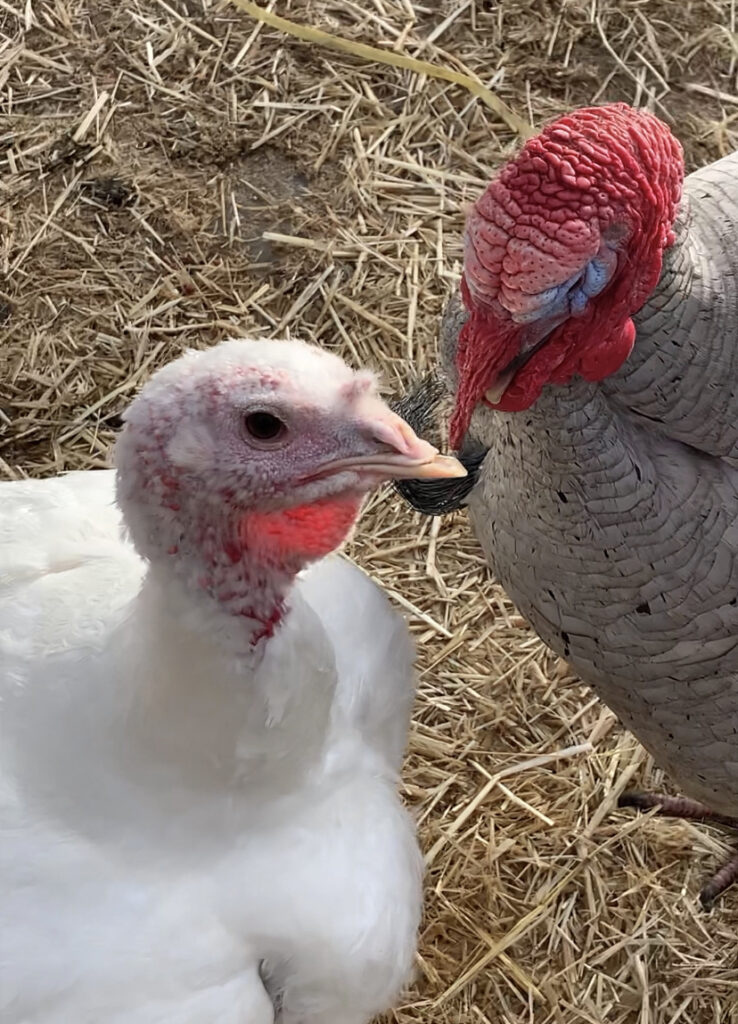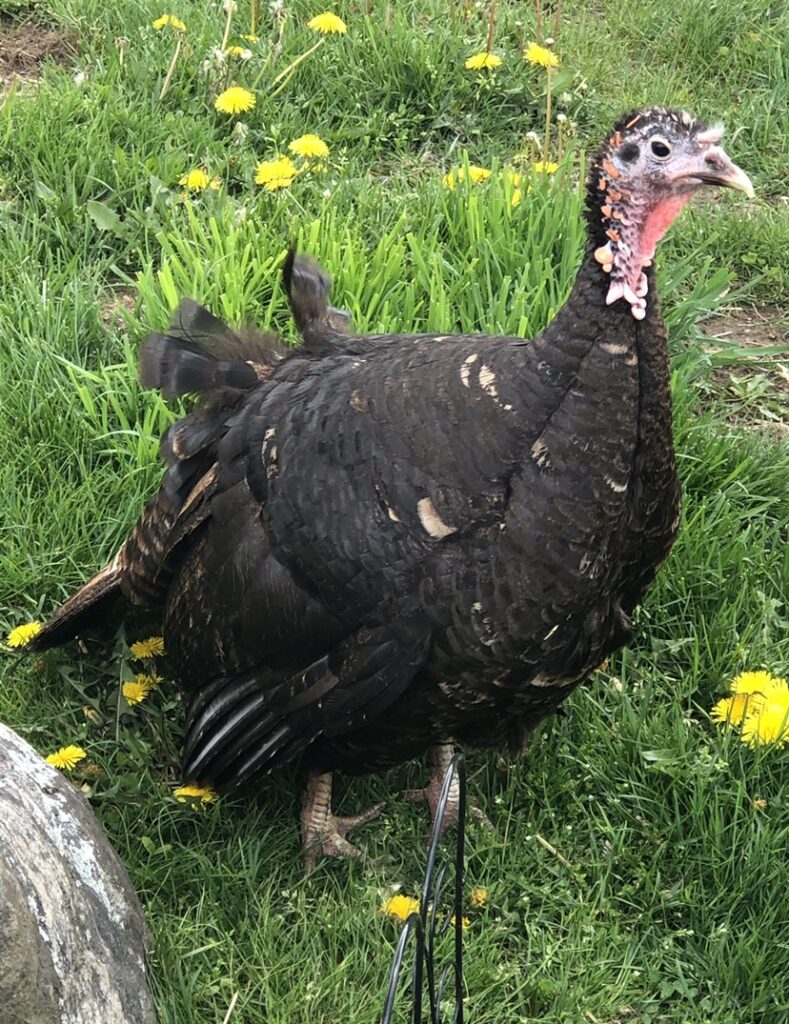Introduction:
When we think of turkeys, many of us envision a Thanksgiving centerpiece or a delicious sandwich filler. However, there’s much more to these birds than meets the eye. In this blog, we delve into the truth about domestic turkeys, shedding light on their sentience, affectionate nature, the staggering number killed each year, and what their natural life span should be.
Sentience:
Contrary to popular belief, domestic turkeys are sentient beings. They possess the ability to perceive and experience the world around them. These birds are not just automatons; they have emotions, feel pain, and have the capacity to form bonds with others. Studies have shown that turkeys can express a wide range of emotions, from happiness to fear, and they have complex social structures within their flocks.
Affectionate Nature:
Turkeys may not be the first animals that come to mind when you think of affection, but they are surprisingly social and affectionate creatures. In a natural setting, turkeys are known to groom each other, form close-knit groups, and even show signs of protecting their young. These behaviors highlight their emotional depth and social intelligence.
The Grim Reality:
Each year, a staggering number of domestic turkeys are raised and slaughtered for their meat. In the United States alone, millions of turkeys are killed annually to meet the demand for Thanksgiving and other holiday feasts. This industrial scale of production often involves crowded and stressful conditions for these birds, leaving them with little room to express their natural behaviors.
Natural Life Span:
In their natural habitat, wild turkeys can live up to 10 years or more. However, the lifespan of domestic turkeys is dramatically shorter due to their use in the meat industry. Most domestic turkeys are slaughtered at a mere 5 to 6 months of age, far short of their potential life expectancy.
The Importance of Sanctuaries:
Freedom Farm Animal Sanctuary and similar organizations play a crucial role in raising awareness about the plight of domestic turkeys. These sanctuaries provide a safe haven for rescued turkeys, allowing them to live out their natural lives in a more compassionate environment.
Conclusion:
It’s time to recognize domestic turkeys for who they truly are: sentient, affectionate beings with a right to a life free from unnecessary suffering. By supporting organizations like Freedom Farm Animal Sanctuary and making informed choices about the food we consume, we can take steps towards a more compassionate world for turkeys and all animals.


